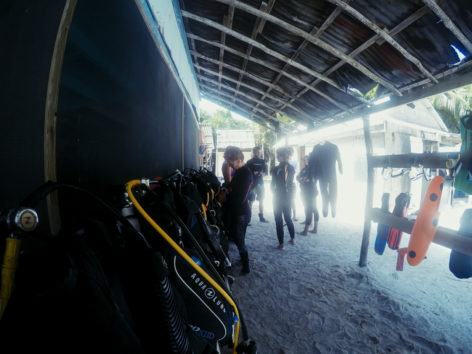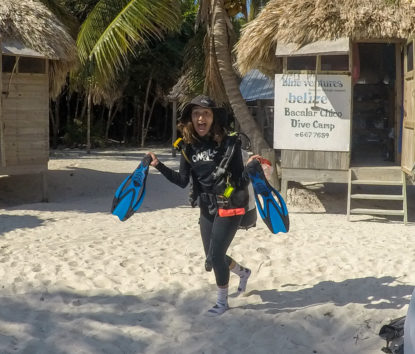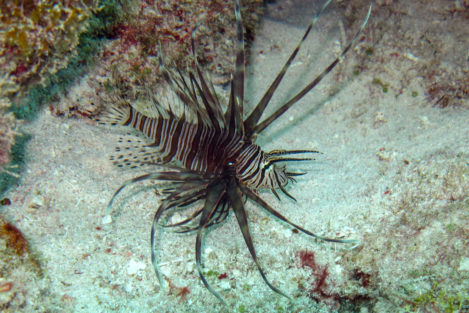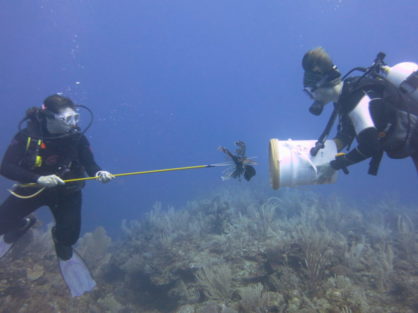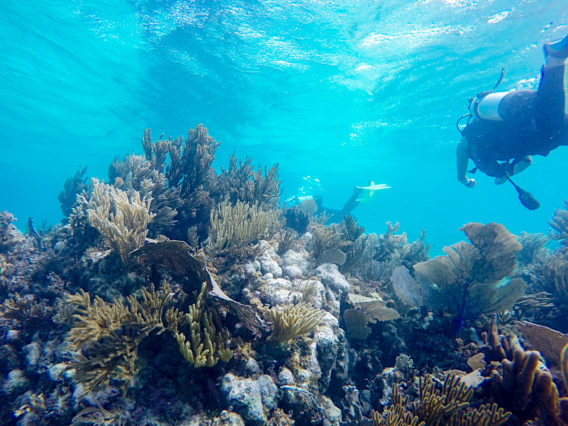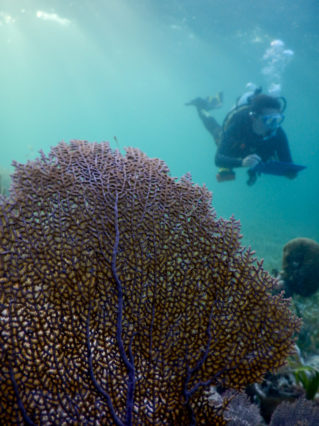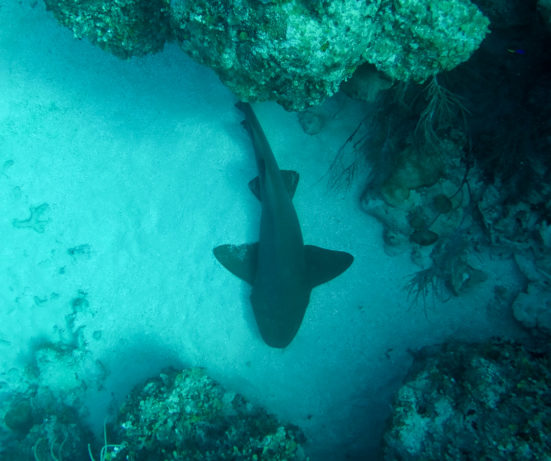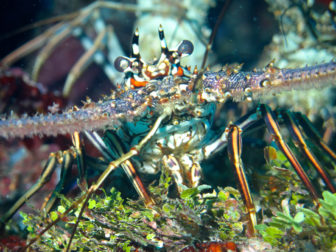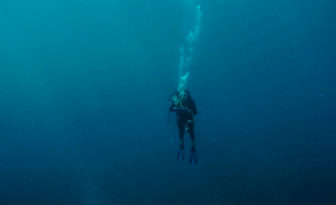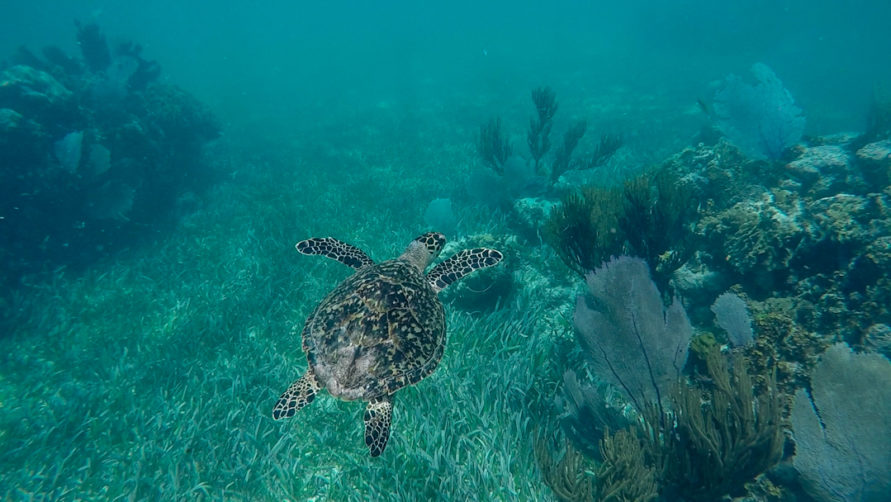Beep. Beep. Beep.
My phone alarm blared, disrupting my deep slumber. 5:45 AM. Time for the day to begin.
I peeked out of my protective sand-fly net from my location on the top bunk in our little wooden cabana. Darkness consumed Bacalar Chico Dive Camp; however, I could see shadowed figures flitting across the sand between the cabanas and The Alcove where the dive gear is kept. The sounds of metal pinging and plastic clips fastening punctuated the otherwise peaceful morning, and indicated that it was time to assemble my own equipment in preparation for the 6:30 AM dive. I tiptoed down the bunk bed ladder to join the other volunteers.
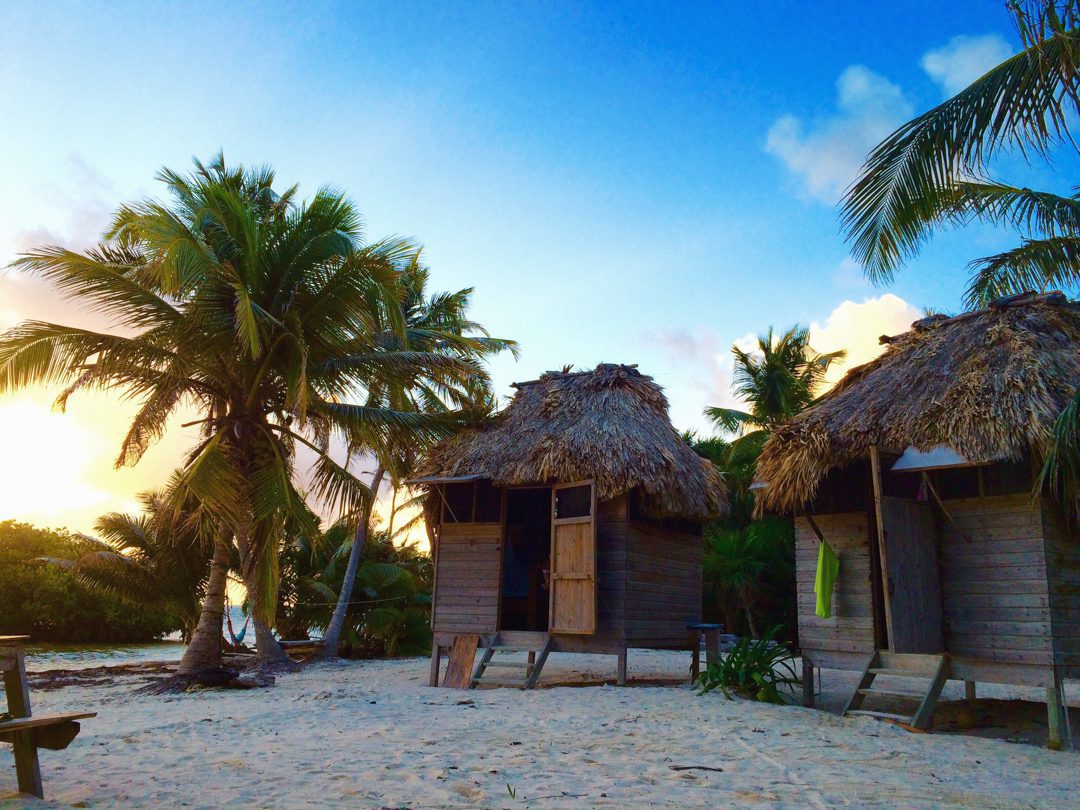
Beautiful morning sunrise over the cabanas! | Photo: Kaesha Freyaldenhoven
Let me tell you a little bit about myself before I continue. I am a 20-year-old college student taking a year out to explore my interests in marine biology and conservation. I am a native Californian and avid beach lover who relishes the feeling of sand between her toes, and is always in search of her next great adventure.
In The Alcove, I gathered my rash vest, BCD (buoyancy control device), regulator, mask and fins. With our equipment ready, the other volunteers and I formed a circle around Henry – Blue Ventures’ Field Scientist – to review the dive objectives. This morning, we were to complete a Lionfish Survey at Goliath Reef.
Find out more about Blue Ventures’ work with invasive lionfish.
The arrival of invasive lionfish to the Atlantic Ocean in the early 1990s severely impacted native fish populations and coral reef ecosystems. Blue Ventures volunteers collect data on lionfish in the Bacalar Chico Marine Reserve: we evaluate a reef by swimming across a transect and recording the species of fish we see. This data is used to calculate a numerical lionfish threshold—how many lionfish can be sustained by a reef before their presence destroys the ecosystem.
To help limit the lionfish population to this calculated threshold, Blue Ventures is speaking to restaurants, consumers and fishers to catalyse the growth of the domestic market for lionfish meat. These efforts are supplemented by regular lionfish culls and value-adding initiatives such as the Belize Lionfish Jewelry Group.
At 6:25 AM, my seven fellow volunteers and I were ready to make our way along the pier to Colombiano, our beloved dive boat. The sun had just begun to peek through the clouds, rising above the turquoise sea and painting the sky a tangerine wash. I shuddered with excitement as Colombiano sped towards our destination—Goliath Reef. We all gripped the sides of the boat tightly as the wind whipped our hair.
The camaraderie I experienced with my fellow Blue Ventures volunteers was incomparable to anything else I’ve experienced.
Although volunteers came from every corner of the earth, all cultural barriers were dissolved by our shared interest in marine science and diving. The camaraderie I experienced with my fellow Blue Ventures volunteers was incomparable to anything else I’ve experienced. Upon our arrival at Goliath Reef, we all assisted each other with our heavy tanks before climbing up onto the edge of the boat.
The boat captain called, “Divers ready?” We nodded. It was dive time!
“Three… two…One!”
We all back rolled off the boat in unison, delighting in the refreshing coolness of the water.
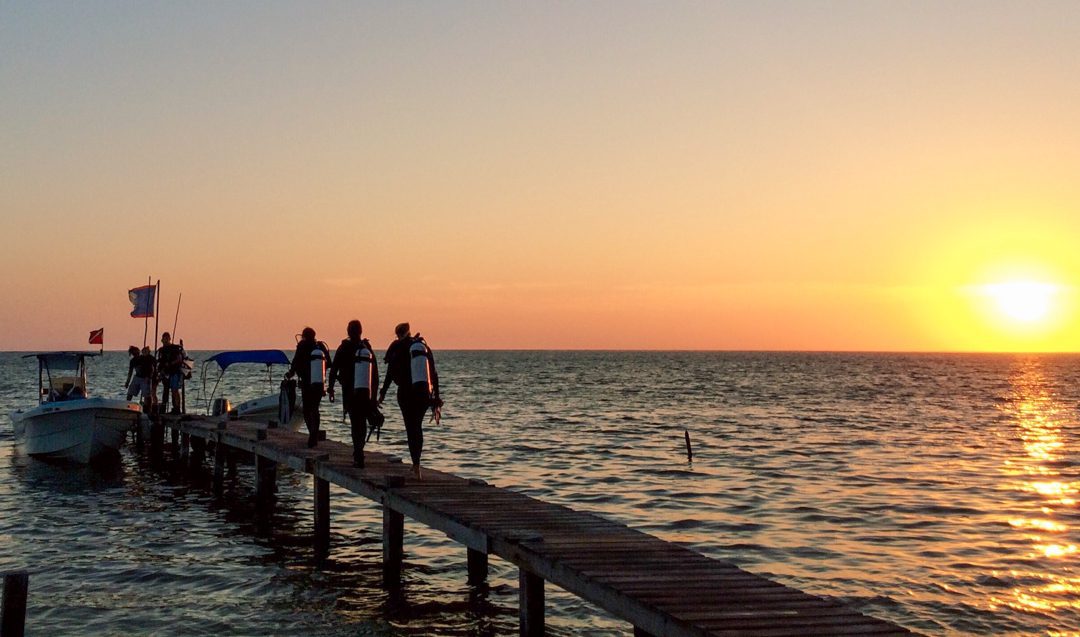
Volunteers headed towards Colombiano at sunrise, all ready for a morning dive! | Photo: Kaesha Freyaldenhoven
Under the sea, everything was calm. My steady breathing provided a rhythmic soundtrack to the undulating fronds of the soft corals.
Identifying the underwater creatures in situ brought my textbook knowledge to life, and heightened my appreciation of the dive.As I descended, my experience changed from simply observing the reef from above to becoming an active part of this astounding marine ecosystem. Squirrelfish eyed me questioningly. Graybsy groupers darted behind crevices as I approached. Caribbean spiny lobsters peeped at me from beneath colourful reef formations. A nurse shark lurked below on the reef’s sandy bottom. Identifying the underwater creatures in situ brought my textbook knowledge to life, and heightened my appreciation of the dive.
Time passed quickly as we completed the Lionfish Survey, and all too soon, it was time to return to the surface.
The ocean now sparkled with the morning sun high in the sky.
All the divers boarded Colombiano to return to Bacalar Chico Dive Camp chatting enthusiastically! “Did you see the dog snapper?” “Yes! The teardrop was so clear! And the hawksbill turtle?” “Oh my, that was amazing!”
Not a minute of the morning had been wasted. It was only 7:45 AM and we had completed a lionfish survey, so much had already been accomplished! For a brief moment I reflected on how thankful I was for this opportunity to apply my newly-learned scientific knowledge to effect positive environmental change. But now, it was definitely time for my morning cup of coffee!
Why not experience Bacalar Chico Dive Camp for yourself on a Marine Conservation Expedition!
Or come for one of our shorter Lionfish Dive Trips.


